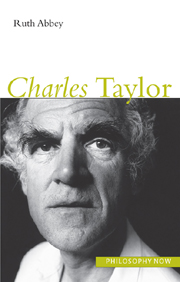5 - Conclusion: sources of secularity
Summary
In April and May 1999, Charles Taylor delivered a course of ten lectures at the University of Edinburgh as part of the annual Gifford lecture series. The Gifford lectures aim to “promote and diffuse the study of Natural Theology in the widest sense of the term – in other words, the knowledge of God”. Taylor's predecessors include William James, Sir James Frazer, Alfred Whitehead, Arnold Toynbee, Paul Ricoeur and Iris Murdoch. The theme of Taylor's lectures was secularity: he tried to answer from several angles the question of what it means to live in a secular age. In what follows, I outline the major contours and arguments of the lectures and note some points of continuity with his published works. Because the lectures have not yet been published and because they represent a work in progress for Taylor, there must be a provisional and general quality to this account. However, because the project is of comparable magnitude to Sources of the Self, it seems important to give some indication of it in these closing pages. Moreover, when dealing with a thinker as indefatigable as Taylor, it is fitting to “conclude” an overview of his work by pointing to its future directions.
The first question Taylor addresses is “what is secularity?” Standard answers refer to the decline of religious belief in western societies, the separation of church and state and the disappearance or diminution of God from the public realm. As Taylor observes in an earlier piece on this question:
when people talk about “secularization”, they can mean a host of different things. […]
- Type
- Chapter
- Information
- Charles Taylor , pp. 195 - 212Publisher: Acumen PublishingPrint publication year: 2000
- 1
- Cited by

